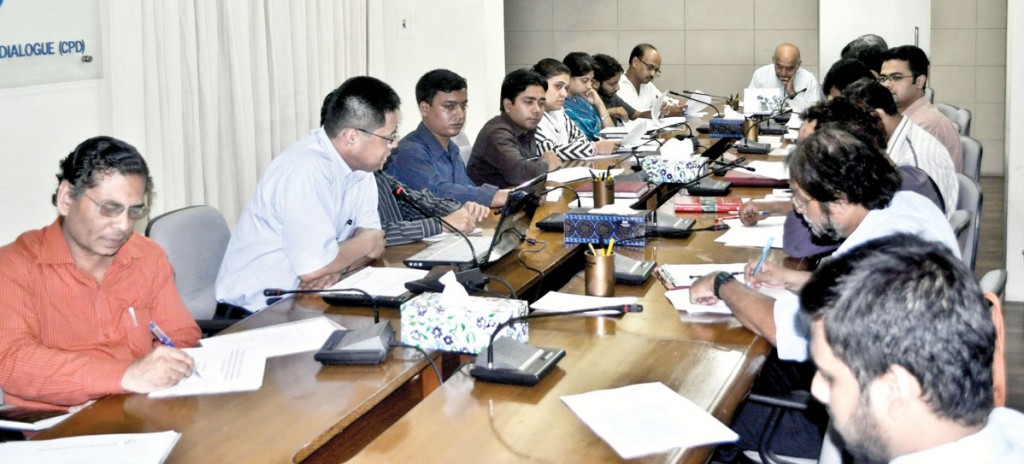An in-house dialogue on Transformation of the Role of Land Tenancy and Mortgage Market and its Implications in Bangladesh: Comparative Perspective with the ‘Peasant Society’ in East Asia and Japan was held at the Dialogue Room of CPD on 3 August 2010. Dr Koichi Fujita, Professor, Center for Southeast Asian Studies (CSEAS), Kyoto University, Japan presented the keynote paper while Professor Mustafizur Rahman, Executive Director, CPD moderated the session. Professor Rehman Sobhan, Chairman, CPD, Dr Shapan Adnan, Professor of the National University, Singapore, and CPD researchers took part in the discussion.
Dr Fujita highlighted the salient features of the agrarian structure of Bangladesh as he had observed during his field visit in Bangladesh several years back. He juxtaposed this to the ‘peasant society’ in East Asia, particularly Japan. Evolved in pre-modern era in 17th century, the peasant society in Japan was characterised by skewed distribution of land ownership. Despite this, land was redistributed to landless small farmers through tenancy and mortgage markets. Thus, there were only small to medium-sized farmers/peasants, and they used only family labour for farm management. Such peasant society developed a culture of very hard work which resulted in increased land productivity, cropping intensity and development of off-season non-farm activities. The agrarian structure of Bangladesh, on the other hand, shows dominance of medium-sized owner-cum-tenant farmers with very rare prevalence of pure tenant farmers who depended mostly on hired labour. A negative relationship between agrarian structure and agricultural intensification such as irrigation and cropping intensity was observed in Bangladesh.
Dr Fujita concluded by saying that although evidence indicates that recent changes of Bangladesh’s agrarian structure is gradually transforming from hired labour-based mode of production to family labour-based mode one, because of agricultural mechanisation, Bangladesh’s agrarian society remains very different from that of Japan.
According to Professor Adnan, there is a lease market prevailing in Bangladesh which redistributes land from ownership to operational groups, but this is now being taken over by the mortgage market. He opined that it is not the kinship relationship, but the rules of games through which the systems operate.
Dr Uttam Deb, Head of Research, CPD expressed his concern that there are risks associated with transformation of the system towards tenancy in Bangladesh. Dr Fujita, however, suggested that this problem could be solved by conversion of the system from sharecropping to lease holding, followed by reduction in the rent of the lease holdings. In conclusion, Professor Rehman Sobhan remarked that there is a need to raise the issue of agrarian reform by giving small farmers their ownership rights in the process of value addition. In responding to queries from the floor, Dr Fujita observed that the tenancy system of Japan cannot be replicated in Bangladesh context in absence of a credible partnership between landowners and tenants. He opined that big NGOs in the country are capable of building farmers’ cooperatives, an initiative, if undertaken, would be beneficial to the farmers.




